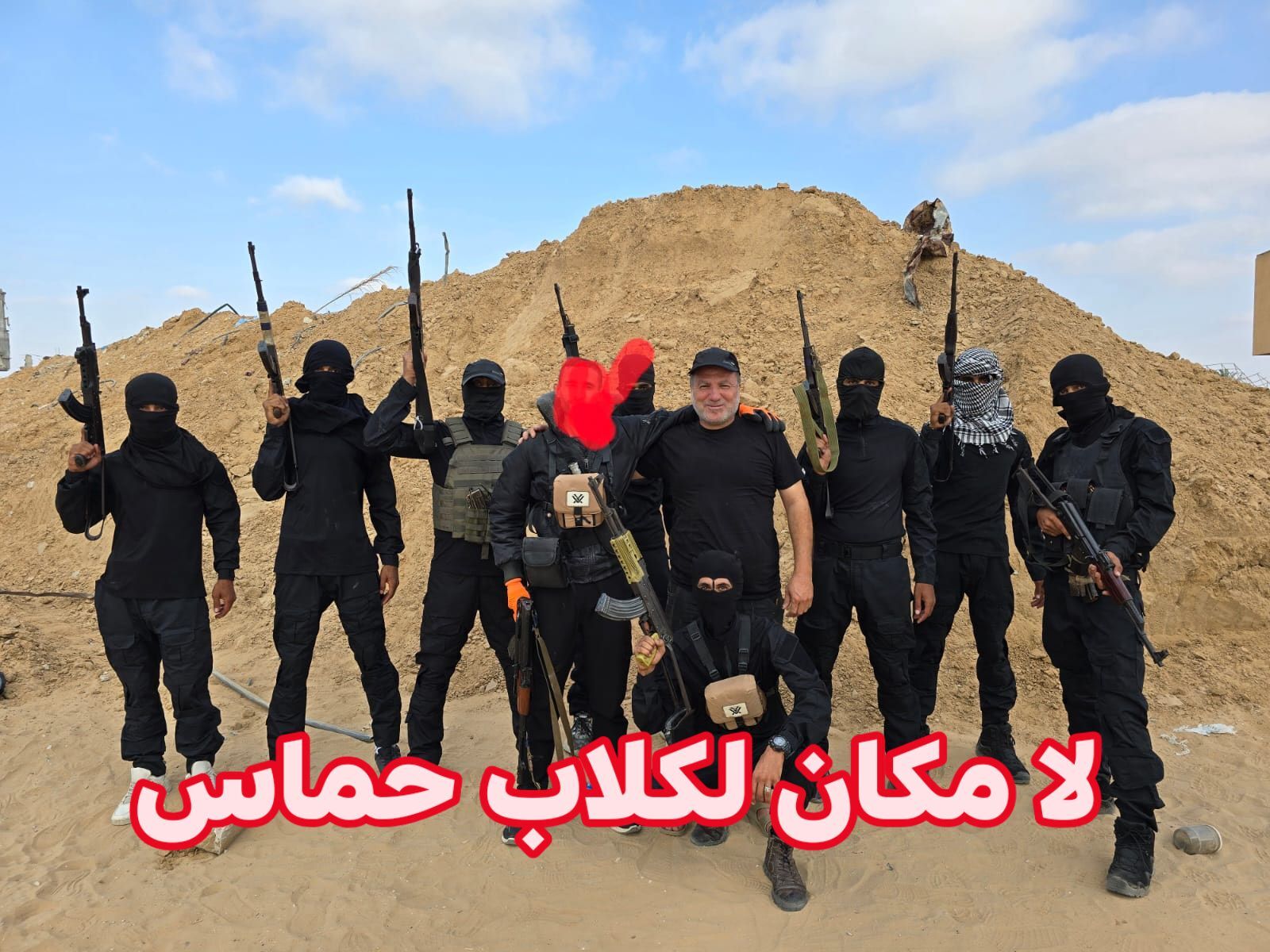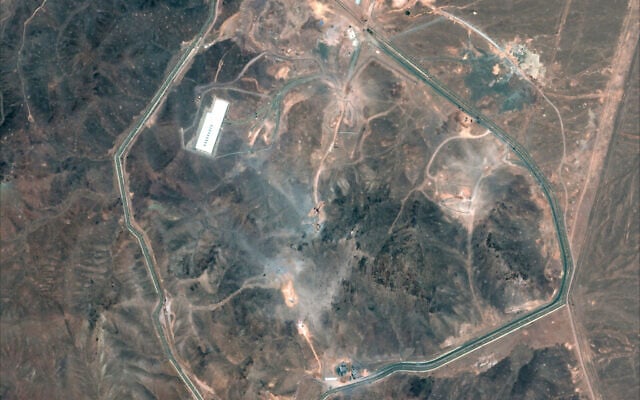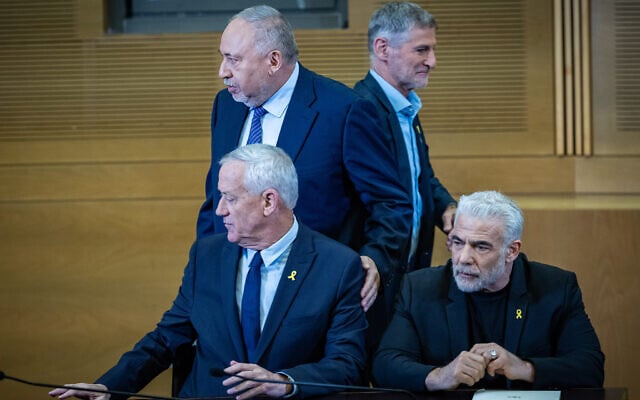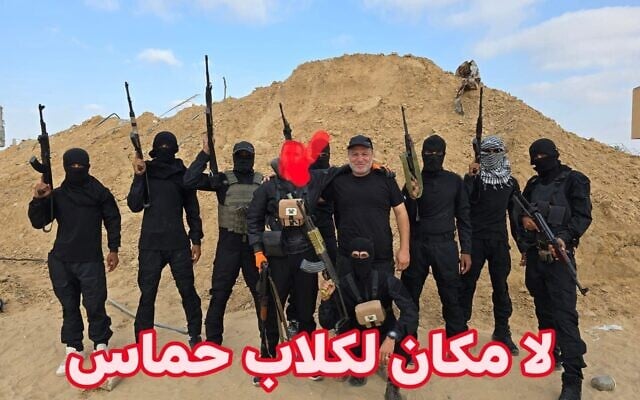


The Times of Israel is liveblogging Friday’s events as they unfold.
After US pressure, Iran withdraws IAEA resolution banning attacks on nuclear sites

VIENNA — Iran decides at the last minute to withdraw a resolution prohibiting attacks on nuclear facilities that it had put forward along with China, Russia and other countries for a vote before an annual gathering of the UN nuclear watchdog’s member nations.
Western diplomats, who speak on condition of anonymity to discuss internal deliberations, say the US has been heavily lobbying behind the scenes to prevent the resolution from being adopted. The US has raised the possibility of reducing funding to the International Atomic Energy Agency if the resolution was adopted and if the body moved to curtail Israel’s rights within the agency, the diplomats say.
In 1981, the provision of assistance to Israel under the IAEA’s technical assistance program was suspended as a result of an Israeli strike on a nuclear reactor in Iraq. At the time, the attack was strongly condemned in resolutions by the UN Security Council, the IAEA General Conference and the IAEA Board of Governors.
The resolution withdrawal comes as US allies have started the clock on reimposing UN sanctions on Iran over it’s nuclear program.
Addressing the IAEA’s General Conference, Iran’s Ambassador to the UN Reza Najafi announces that “guided by the spirit of goodwill and constructive engagement, and at the request of several member states,” it deferred action on the draft until next year’s conference.
IDF confirms intercepting another Houthi drone from Yemen
The IDF confirms intercepting another drone that was launched at Israel earlier tonight by Yemen’s Houthi rebels.
“No sirens were activated in accordance with protocol,” says a statement from the military.
The IDF also says it’s investigating the Houthi explosive drone that struck a hotel in Eilat, resulting in damage but no injuries.
Attacking bloc mentality, Gantz castigates fellow opposition members, former coalition partners

National Unity party leader Benny Gantz launches a scathing attack on fellow opposition members and former partners in a governing coalition led by Naftali Bennett four years ago, saying its focus on opposing Prime Minister Benjamin Netanyahu had been a failure.
The change government failed at its basic task, to bring change,” Gantz says at a party meeting, referring to the wide-tent 2021-2022 government he was a senior partner in. “It proved that it is impossible to build a narrow government based on opposition to a single person, without a shared vision.”
He says the “clear takeaway” from that experience is that basing political maneuverings on blocs “jams up Israel and is only good for extremists.”
He lashes out at others in the opposition who refused to follow him into the government following October 7, saying they were pushed away by the bloc mentality, which he charges is “the biggest thing preventing Israel from progressing.”
“It seems the heads of the opposition forgot that they were voted in not just to appear in TV studios and go out afterward to drink espresso, but to have an influence on the situation and represent a public,” he says.
According to Gantz, the strategy led to the current situation, in which “Israel is on the cusp of civil war,” and “Extremists have moved from the fringes to running the country.”
He also attacks erstwhile political partner Gadi Eisenkot, who split off to form his own party two months ago, saying “we are here for the long term, we don’t zig-zag in response to polls.”
His comments come as a poll of 505 respondents published by Channel 12 news shows his party largely failing to make it back into the Knesset, though a Bennett-led party garners 24 Knesset seats and one led by Eisenkot snags 10.
Using his derided bloc math, the channel predicts that were elections held today — they are currently only scheduled for next year — a Bennett-led government would have enough seats to form a thin coalition, pushing Netanyahu back into the opposition.
Armed group claims to set up area in Khan Younis for Gazans seeking alternative to Hamas rule

A former member of the Palestinian Authority’s security forces in Gaza says he has formed a group operating against Hamas in southern Gaza’s Khan Younis, and urges Palestinians in the area to seek safety with him.
Hossam al-Astal tells The Times of Israel that his group will take in “whoever lives under Hamas’s oppression,” and that there is enough food, water and shelter for all.
“In the coming days, we will bring in another 300-400 people,” he says, adding that the group carries out security screenings to make sure those joining have no ties to Hamas.
Al-Astal’s group has established itself around the village of Kizan al-Najjar, just south of Khan Younis, which was emptied of its residents during the war. The location is about a kilometer from al-Mawasi, where Israel has directed Palestinians displaced from Gaza City.
“I am responsible for the (new) humanitarian zone in Khan Younis,” he explains, comparing his efforts to those of Yasser Abu Shabab, whose armed gang has set up security structures and civilian infrastructure as an alternative to Hamas rule in Israeli-controlled parts of Rafah in recent months.
The two men and their respective groups are in contact, al-Astal says, “but each of us operates independently.”
Hailing from a Bedouin family in the Khan Younis area, 50-year-old al-Astal says he worked in Israel for many years, and later for the PA’s security forces when they still controlled Gaza. He was jailed by Hamas several times. Hamas-linked social media accounts have shared images of al-Astal in recent days, accusing him of collaborating with Israel.
He says there is “coordination” between his group and Israel, and that soon “we will rely on Israel to bring us electricity and water.”
Al-Astal says the group has weapons to defend themselves and that they received funding from multiple sources, including the US, Europe, and unspecified Arab states.
“People here don’t want Hamas, they want peace with Israel,” he says. “I’m 50 years old; I remember when the army and Israel were in Gaza, and we lived in peace,” he reflects. “Children played, children went to school, and there were no problems. But today, Hamas’s terror has destroyed Gaza and its people.”

